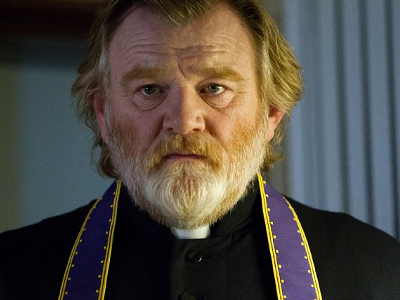
Audio By Carbonatix
[
{
"name": "GPT - Leaderboard - Inline - Content",
"component": "35519556",
"insertPoint": "5th",
"startingPoint": "3",
"requiredCountToDisplay": "3",
"maxInsertions": 100,
"adList": [
{
"adPreset": "LeaderboardInline"
}
]
}
]
Life Itself | B
What a strange place to be, writing a review of a film about the man who taught me what it means to be a film critic.
Before stumbling across Sneak Previews on Channel 13 in New York as a teen, I had no idea there was even such a thing as a film critic. I loved movies but somehow had missed that fact that there were people who actually got paid to give their opinion about them.
Mind you, I lived just outside the city that gave us the great Pauline Kael and Andrew Sarris rivalry. But they were waging a war of words in magazines I had never even heard of. Gene Siskel and Roger Ebert were on my television, sniping at each other week after week about movies I both loved and hated. It was a revelation, rewiring the way I experienced cinema.
After graduating high school I attended Ebert's alma mater, the University of Illinois, and even worked for the same newspaper, The Daily Illini, where he was once editor-in-chief. To say that the Pulitzer-winning critic had an influence on me would be an understatement.
What I learned from his writing and television appearances was that reviews are — for better or worse — intrinsically subjective. We all bring our own baggage into the theater and it influences how we regard film. Which suggests that on some level that when we argue about movies, we are really arguing about who we are, what we know, and how we encounter the world.
And so given my obvious fondness for Ebert, I kind of love director Steve James' documentary Life Itself. Part love letter, part moving elegy, and part conventional portrait, it honors a man I had great respect for. But that does not necessarily mean it's a successful documentary. Despite its obvious affection for Ebert, the film feels unfinished, failing to meaningfully investigate his life's work and influence. Not that James doesn't try to cram some of that into his already overstuffed two-hour film.
A longtime associate (Ebert championed his first film Hoop Dreams as well as his later masterpiece The Interrupters), James was given full access to what would turn out to be the critic's final months of life. Neither, of course, knew that when the documentary began. Instead, Ebert, who had been battling cancer for 11 years, believed he would recover and they would collaborate on a chronicle to his legacy. But as things took a turn for the worse, Life Itself evolved into a surprisingly intimate portrait of the critic's painfully declining health. It's likely that Ebert, given his influence on the film, slowly came to understand that he was helping to author his own eulogy. What he may not have realized, however, was how much focus James would give to his medical struggles. While they certainly provide the film's strongest emotional moments, it's an unfortunate choice that lets the circumstances of Ebert's death overshadow what should have been a purposeful examination of his life.
Using his 2011 Life Itself memoir as a foundation (with voice actor Stephen Stanton doing a credible job of emulating the critic's voice), James dutifully covers Ebert's precocious childhood, his college newspaper years at U of I, his decades at the Chicago Sun-Times (where he was the first film critic to ever win a Pulitzer), his oil and vinegar partnership with Siskel, and his late-in-life marriage to Chaz Hammel-Smith. It's a solid, if conventional, biographical frame that tends to paint Ebert into more of a personality than a man, but takes care to include his unsavory appetite for food, booze, and sexual prurience (thus introducing him to exploitation filmmaker Russ Meyer and his screenwriting credit on Beyond The Valley of the Dolls). It also reveals his sometimes controlling and petulant egotism.
And while those foibles help present a fuller picture, they seem cautiously deliberate, presented as evidence that Life Itself is not just a hagiography rather than an honest examination of what made Ebert tick. To understand that, you have to watch for the film's more casual footnotes, small details that hint at the man behind the personality. There is his righteous decision to literally stop the presses at his college newspaper, his awkward television debut, and a tender moment as Ebert explains the genius of Michael Apted's 7-Up documentaries to his teen grand daughter.
Life Itself is at its most compelling when it tackles Siskel and Ebert's contentious professional marriage. Their rivalry is a fascinating stew of insecurity, resentment, respect, and codependence. Each man seemed to believe and hate that his fate and fortunes were tied to the other (after all, they were the country's most famous critics). Hearing testimonials from people involved with both Sneak Previews and At The Movies, watching blooper reels of the two insulting each other between takes, and witnessing their passionate on-screen arguments, it is clear that their partnership brought out their personal worst and professional best. Whatever issues working class Ebert and Ivy League Siskel (who, I was surprised to discover, hobnobbed with Hugh Hefner and his bunnies) had with one another, both fervently believed in the power of film and the worthiness of their debate.
It says a lot that James doesn't even bother to mention Ebert's post-Siskel efforts (Richard Roeper is noticeably absent). Unfortunately, this results in only a passing mention of the critic's passion for blogging. As cancer stole his jaw (and thus his speech) Ebert found a new voice via the Internet, attracting a large and loyal readership to his non-film writing. For those who read his later work, it became clear that his impending mortality blunted the sharp edge of his film reviews but inspired a generously humanistic streak in his social and political commentary.
And this where Life Itself falls short, neither capturing Ebert's evolving role as a thinker nor the art in his craft. Ebert's life was centered around words — most especially in its last decade — and they deserved to be shared. How do you not find a way to sum up his view of cinema and film criticism? Where does he fit within the scope of his field and Hollywood at large? Despite talking head appearances from Martin Scorsese (who was the executive producer on the doc), A.O. Scott, Werner Herzog, Errol Morris, Ramin Bahrani, Ava DuVernay, and Richard Corliss, James barely touches on these questions, assuming that we already respect Ebert for his wit, wisdom and importance.
Ebert famously described cinema as “a machine that generates empathy.” He saw the medium as a unique window into the lives of others, allowing us to figuratively walk in another man's or woman's shoes. In that way, Life Itself achieves a certain amount of success. You cannot help but feel empathy for the painful struggle that consumed his final days. But if you really want to understand who Ebert was, you'll need to read his work. It may not answer all your questions but it will put you in the company of a man whose passion for cinema displayed both boundless empathy and the fullness of life.
Life Itself is playing at the Main Art in Royal Oak. It is rated R and has a run time of 2 hours.





